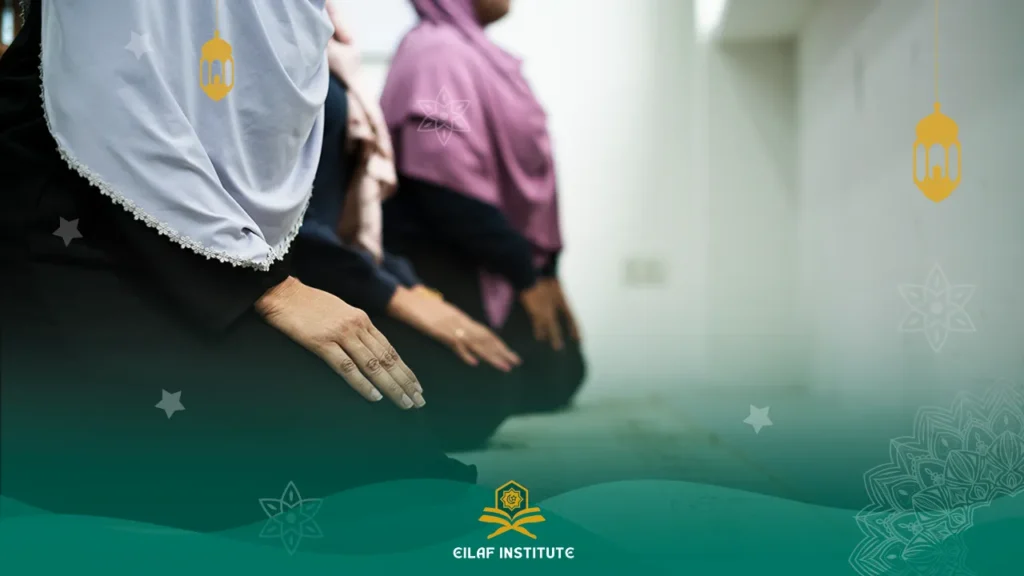A common question often asked is: Do Muslim Women Pray? The simple and emphatic answer is: Yes, absolutely. The act of muslim women praying is a fundamental obligation for all adult Muslims, male or female.
Muslim women, like men, are deeply committed to their spiritual duties, and Salah (prayer) is one of the most important. It’s a personal journey of devotion, humility, and remembrance of God.
The Foundation of Faith: Obligation and Practice
Prayer is one of the Five Pillars of Islam, a framework of duties that guides a Muslim’s life. For Muslim women, it’s not just a ritual; it’s a vital part of their daily life and spiritual well-being. It helps them cultivate mindfulness, inner peace, and a continuous awareness of their Creator.
This daily discipline strengthens their relationship with God and provides a sense of purpose and comfort. It reminds them of their place in the universe and their ultimate reliance on the Divine. This universal requirement confirms that women’s prayer in Islam is non-negotiable for spiritually mature individuals.
Frequency of Prayer: Answering the Daily Call
A key component of this devotion is addressing the question: how often do muslim women pray? Just like Muslim men, the obligation to perform Salah five times a day is universal for all adult Muslims. This confirms that, yes, do muslim women pray 5 times a day is the standard requirement. These prayers are observed at specific times from dawn until nightfall:
- Fajr: Before sunrise
- Dhuhr: Midday
- Asr: Late afternoon
- Maghrib: Immediately after sunset
- Isha: Night
Each prayer has a designated window, ensuring that Muslims worldwide maintain a regular connection with God throughout their day.
The Sacred Act: Understanding the Method
The method of prayer, detailing How do women pray in islam, involves a series of specific postures and recitations. It’s a beautiful, structured act of worship. Before prayer, a Muslim woman performs Wudu (ablution), a ritual cleansing to ensure physical purity.
Preparation and Postures
The prayer then proceeds with:
- Intention: Making a sincere resolve to pray for God’s sake.
- Facing the Qibla: Facing the Kaaba in Mecca, Saudi Arabia, the central point of worship for Muslims globally.
- Recitations: Reading verses from the Quran and other supplications while standing, bowing (Ruku), and prostrating (Sujood).
Each movement and word is performed with reverence and humility, focusing the heart and mind on God. The ultimate goal is to achieve Khushu, deep focus and humility, during prayer.
Book your place in this course now: learn to read quran online
Are There Differences? Postures and Modesty
While the core elements and spiritual purpose of prayer are identical for both genders, there are minor, subtle differences in physical posture. These differences are generally understood to emphasize modesty and comfort for women.
For instance, when a Muslim woman prays or prostrates, her movements are typically more contained and modest compared to men. However, the spiritual significance, the required recitations, and the number of prayer units (rakats) remain exactly the same. Both men and women are equally rewarded for their prayers.
Sacred Spaces: Where Muslim Women Worship
Do Muslim Women Pray? Yes, and their location of worship is flexible and varied. When considering Where do muslim women pray, options include the home and the mosque.
Praying at Home
Many Muslim women prefer to pray at home. The Prophet Muhammad (peace be upon him) mentioned that a woman’s prayer in her home is often superior for her. This allows for privacy and a comfortable environment for devotion.
Praying in Mosques
The question can muslim women go to mosque is frequently asked, and the answer is an emphatic yes. Muslim women are absolutely permitted, and often encouraged, to pray in mosques (Masjids).
Mosques typically have separate sections or prayer areas specifically designated for women to ensure privacy and comfort. This clarifies that do muslim women go to the mosque is a fully permissible and often encouraged practice, allowing women to benefit from communal worship and religious lectures.
The choice often depends on personal preference, comfort, and local customs, but both options are Islamically valid and widely practiced.
Read also about: Where can a muslim pray
Important Exemptions: Easing the Obligation
Islam is a religion of ease and practicality. There are specific times when Muslim women are temporarily exempt from performing daily prayers:
- Menstruation: During their menstrual cycle, women are not required to pray or fast. They are not required to make up missed prayers later, but they must make up any missed fasts.
- Post-Natal Bleeding (Nifas): Similarly, during the post-childbirth bleeding period, prayer is not obligatory.
The Spiritual Journey: The Significance of Prayer
For a Muslim woman, Salah is a powerful tool for spiritual growth and emotional resilience. It provides:
- A Direct Connection: An uninterrupted line of communication with God.
- Inner Peace: A sanctuary from daily stresses and anxieties.
- Discipline: A structured routine that fosters self-control and mindfulness.
- Gratitude: A regular opportunity to thank God for blessings.
Be a part of this course: Quran classes for females
In conclusion, Do Muslim Women Pray? Unequivocally yes.
Prayer is a cherished, integral part of a Muslim woman’s life, reflecting her devotion, strengthening her faith, and connecting her profoundly with God. It’s a beautiful and essential practice observed by millions worldwide, embodying sincerity and submission to the Divine.
Source:
Is It Better for a Woman to Pray at Home?

